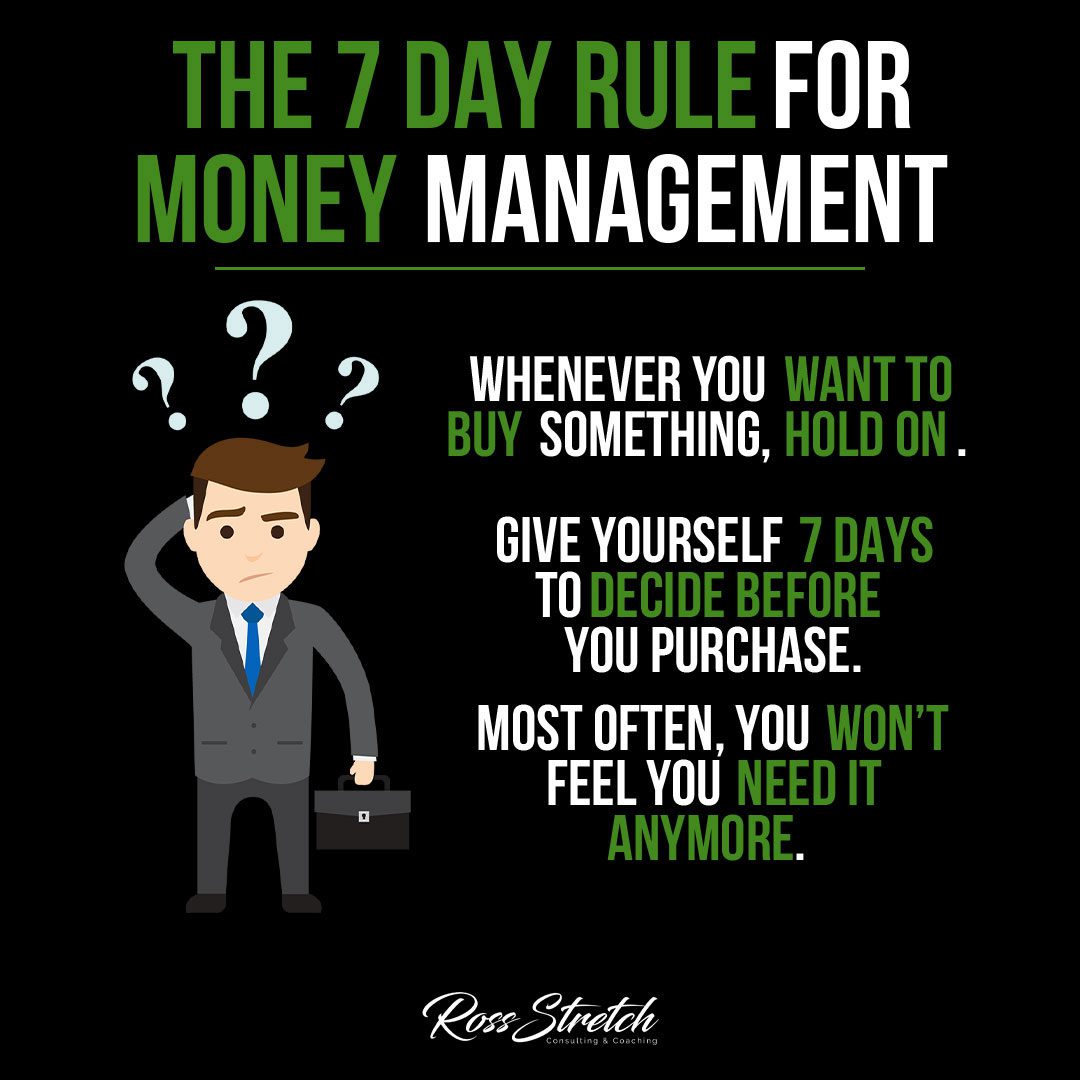In a world characterized by rapid consumption, instant gratification, and the allure of e-commerce, many fall into the trap of impulsive purchases. However, a strategic approach to buying—embodied by the 7-day rule—has emerged as an effective money management technique. By advocating a week-long reflection period before any purchase, it encourages mindful spending and empowers individuals to take control of their financial habits.
1. Understanding Impulsive Purchases
Before diving into the 7-day rule, it’s vital to understand the psyche behind impulsive buying. Triggered by emotional factors, sales, or the mere convenience of online shopping, these purchases might offer instant gratification but often lead to buyer’s remorse later.
2. The Essence of the 7-Day Rule
The 7-day rule is simple yet transformative. When confronted with the desire to buy something, instead of immediately acting on the impulse, one gives themselves a seven-day window to ponder the decision. This pause allows for:
- Reflective Analysis: Is the product or service truly necessary? Does it add value?
- Budgetary Checks: Is this purchase within the budget? Are there more pressing financial needs?
- Comparative Shopping: Can a better deal or alternative be found elsewhere?
3. The Impact on Financial Health
By adhering to the 7-day rule, many find a significant decline in non-essential purchases. Over time, this can lead to:
- Savings Boost: With fewer impulsive purchases, one can redirect funds to savings.
- Debt Reduction: Mindful spending can prevent unnecessary debts, especially on credit cards.
- Enhanced Financial Security: With a tighter grip on expenditures, financial stability is more achievable.
4. Beyond Money Management
The benefits of the 7-day rule aren’t confined to financial spheres. This practice fosters patience, curbs the culture of immediate gratification, and promotes a more mindful and contented lifestyle.
5. In Conclusion
The 7-day rule for money management is more than just a technique; it’s a lifestyle choice. In a world where consumerism often takes precedence, this rule serves as a beacon, guiding individuals towards prudent financial decisions and a more balanced life.


